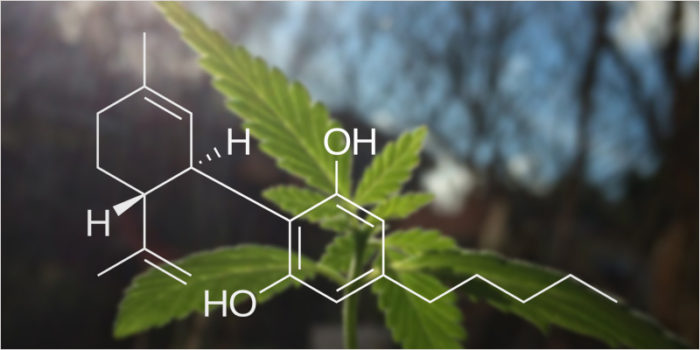CBD AND ITS THOUSAND QUALITIES
It’s the boom. The boom after years of prohibition on the active components of cannabis. And the green goldrush that carries it. While the plant was already used for its Omega3 ALA and its complete source protein, now it is the psychoactive properties of THC and the extraordinary benefits of CBD that open their doors. Let’s leave aside THC, tetrahydrocannabinol and its psychoactive components that influence sensory perceptions to focus on CBD, one of the 100 and more cannabinoids found in cannabis, and its full range of highly medicinal, antioxidant, anti-inflammatory and neuroprotective properties.
The molecules of Cannabidiol, CBD, are extracted and concentrated to offer its virtues to the human body. The body is composed of receptors as well as chemical molecules naturally conceived in the endocannabinoid network, notably anandamide and 2-arachidonoylglycerol, or 2-AG. Anandamide also comes from the Sanskrit term designating the state of bliss. These govern a system of homeostasis with internal changes and external stimuli, stress and stress response as well as the immune system[1]. There is an abundance throughout the human body of the two main receptors, CB1 (in the central nervous system) and CB2 (in the cells of the immune system and distributed around the periphery and in the digestive tract), and a failure of this network is associated with certain medical conditions including ADHD disorder, post-traumatic stress disorder (PTSD), drug dependence, obesity and depression.[2]
According to the World Health Organization, CBD acts as an anti-agonist of the effects of THC on the CB1 and CB2 receptors, those to which THC attaches and which provide the euphoric but also addictive effects. CBD rather acts on these receptors to encourage the endogenous production of anandamide.[3] CBD also influences a receptor belonging to the serotonin network, 5-HT1a, which has a reducing effect on general anxiety.[4]
The first drug extracted from cannabis with CBD stood out to treat epilepsy remarkably and particularly two of its most cruel variations, Dravet syndrome and that of Lennox-Gastauf.[5]
One of the distinguishing features of CBD is the lack of dependency on short or prolonged use.[6] CBD can give the same pain-reducing effects as some opioid medications without causing the classic addiction.[7] Not only has there been no death from a CBD in the scientific literature, unlike alcohol, tobacco and several pharmaceutical drugs, but most studies fail to demonstrate negative effects for the use of CBD. However, a recent study on mice with high doses of CBD, observed an increase in liver enzymes in a percentage of subjects, suggesting a slight toxic action on this organ, just like alcohol would do. On the other hand, another study demonstrates the anti-inflammatory effects of CBD and its positive effect on some liver-related symptoms.
A thousand virtues
Let’s now look at the antioxidant, anxiolytic and anti-inflammatory effects of CBD.
CORTISOL REDUCTION AND SLEEP
One of the most interesting CBD effects is the protection of the nervous system against stress by acting on the hormonal HPA axis, linking the hypothalamus and the adrenals. CBD greatly reduces the level of cortisol in plasma and therefore it seems very useful for counteracting stress and promoting restful sleep when taken before bedtime.[8]
ANXIETY
CBD appears to have an anxiolytic effect by reducing the blood circulation of the limbic system parts associated with stress and anxiety, and increases cognition and motivation.[9] This study even demonstrates the benefit of CBD for those who have a stress of public speaking by making the experience more comfortable.[10]
EFFECTS ON PARKINSON AND ALZHEIMER
It seems to be becoming more and more common to use CBD to counteract Parkinson’s progress. Some interesting studies reveal the therapeutic potential of CBD on neurodegenerative diseases. CBD appears to have an anti-agonist action on GPR6 receptors which increases the production of dopamine and could positively affect Parkinson’s,[11] which is marked by a decrease of this neurotransmitter by basal ganglia and substancia nigra of the brain. This also seems to be the case for Huntington’s syndrome and tremor related diseases.[12]
Among the most interesting results are those linked with Alzheimer’s, the disease that causes neuron death, affecting 35 million people and 7.7 million new cases are diagnosed each year.[13] The recognized high antioxidant and anti-inflammatory effects of CBD give it a prominent place in the prevention and treatment of Alzheimer’s disease.[14] Its effects promoting neurogenesis also appear to be acting in the role towards this disease.[15]
ANTI-INFLAMMATORY
Cannabidiol appears to be a potent anti-inflammatory agent since it induces the state of apoptosis (the programmed death of ” sick ” cells), the inhibition of cell proliferations, the suppression of cytokine production (marking the inflammatory process) and induction of T-regulatory cells. Cannabinoids, with their neuroprotective and anti-inflammatory actions, are an effective treatment to overcome the effects of multiple sclerosis.[16]
CARDIOPROTECTIVE
CBD could have cardioprotective effects. In rodent studies, CBD has a relaxing effect on the arteries and its anti-inflammatory side could protect against heart attacks and strokes.[17]
CROHN AND THE INFLAMMATION OF THE DIGESTIVE TUBE
The anti-inflammatory action of CBD is also transmitted to symptoms associated with the digestive tract such as Crohn’s disease, colitis, and any other form of inflammation of the tube.[18] Its action uses the endocannabinoid system of the body to decrease the inflammation of the tube, and in particular the interleukin-6 cells in the digestive tract, which is promising treatment for the irritable colon and associated diseases.[19]
THE MICROBIOMA, THE TUBE AND THE GUT-BRAIN AXIS
In addition, the endocannabinoid system is highly interacting with the intestinal flora. The bacteria appear to interact with the CB2 receptors of the digestive tract and the endocannabinoid network modulates the gut-brain axis by promoting the connection between the two, which positively affects the regulation of good bacteria.[20]
NEUROGENESIS
The action of CBD via another kind of receptor has been shown to fuel neurogenesis, i.e., the creation of new neurons, in the hippocampus region.[21]
MITOCHONDRIA
The molecule also seems to have effects on the increase of metabolism of mitochondria, these organelles within the cells that operate not only the production of ATP and energy of the cell but also the repair of it and the control of epigenetics of the nucleus DNA. One study demonstrated that the administration of CBD fuel the metabolism of respiratory proteins cytochrome I, II, II-III and IV of the mitochondria as well as the activity of creatine kinase.[22]
RHEUMATOID ARTHRITIS
The anti-inflammatory action of CBD extends once again to slow the advance of rheumatoid arthritis and the genesis of osteoclasts that degrade the bone structure.[23]
DIABETES AND INSULIN
CBD appears to reduce the risk of diabetes in mice by preventing the destruction of cells responsible for producing insulin in the pancreas.[24]
TRAINING RECOVERY
With its antioxidant and anti-inflammatory properties, endurance athlete Ben Greenfield recommends the use of CBD for recovery after training and to promote deep sleep.
OTHER STUDIES
A study in Israel on a limited number of patients, with fatal syndrome in 80% of cases of Graft Versus Host (GVHD), a disease following a blood transfer, demonstrated complete remission in 7 of 10 patients, and 2 more having positive results.[25]
DOSAGE
The dosage seems to vary according to the different pathologies targeted or the different purpose of it. Between 10mg and 600mg depending on the sensitivity of the person and the severity of his condition. For my part, for a bottle of 1000mg for 30mL, my body is quite sensitive and I can use 2 drops in the day and 4-8 drops for sleep in the evening and feel the effects. Nevertheless, not all companies offer the same quality of CBD and the market still looks like the Far West when it comes to getting quality CBD oil.
[1] https://www.ncbi.nlm.nih.gov/pmc/articles/PMC2828614/
[2] https://www.ncbi.nlm.nih.gov/pubmed/19897083
[3] https://www.who.int/medicines/access/controlled-substances/5.2_CBD.pdf
[4] https://www.ncbi.nlm.nih.gov/pmc/articles/PMC3110547/
[5] https://www.neurologylive.com/conferences/aan-2019/cbd-reduces-convulsive-total-seizure-frequency-in-dravet-syndrome
[6] https://www.who.int/medicines/access/controlled-substances/5.2_CBD.pdf
[7] https://www.ncbi.nlm.nih.gov/pubmed/25485642
[8] https://www.ncbi.nlm.nih.gov/pmc/articles/PMC6326553/
[9] https://www.ncbi.nlm.nih.gov/pubmed/20829306/
[10] https://www.ncbi.nlm.nih.gov/pubmed/21307846
[11] https://www.davisphinneyfoundation.org/blog/new-research-medication-and-cbd-oil-in-parkinsons-with-dr-trevor-hawkins/
[12] https://www.ncbi.nlm.nih.gov/pmc/articles/PMC5958190/
[13] https://www.ncbi.nlm.nih.gov/pubmed/26845349
[14] https://www.ncbi.nlm.nih.gov/pmc/articles/PMC5958190/#B13
[15] https://www.ncbi.nlm.nih.gov/pubmed/22163051/
[16] https://www.ncbi.nlm.nih.gov/pmc/articles/PMC2828614/
[17] https://www.ncbi.nlm.nih.gov/pmc/articles/PMC3579247/
[18] https://www.ncbi.nlm.nih.gov/pmc/articles/PMC2828614/
[19] https://www.ncbi.nlm.nih.gov/pmc/articles/PMC4458548/
[20] https://www.projectcbd.org/medicine/cbd-and-parkinsons-disease
[21] https://www.ncbi.nlm.nih.gov/pubmed/22163051/
[22] https://www.ncbi.nlm.nih.gov/pubmed/24402213/
[23] https://www.ncbi.nlm.nih.gov/pubmed/17786950/
[24] https://www.ncbi.nlm.nih.gov/pubmed/25485642
[25] https://www.ncbi.nlm.nih.gov/pubmed/26033282



I cannot go a day without my asteroid gummies!